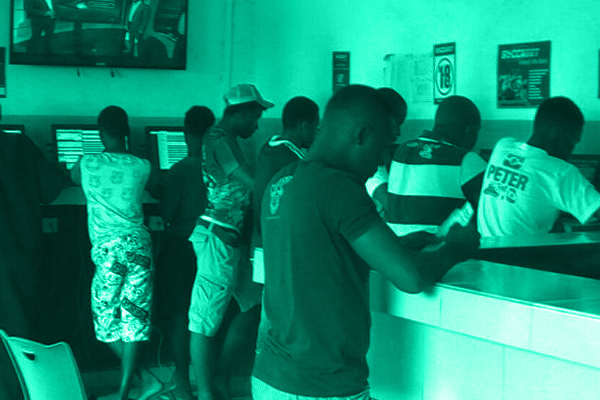In 2024, the Government of Ghana is hoping to generate some GH¢176.4 billion in revenue and grants of which about 81% is expected to come from taxes.
The betting and gaming industry is expected to contribute more than GH¢1.7 billion to the revenue basket in 2024 as the Ghana Revenue Authority (GRA) targets additional GH¢583 million by roping in about 1,200 Private Lotto Operators (PLOs) who have been outside the tax net since the Authority started implementing the Gross Gaming Revenue (GGR) tax as well as the withholding tax on winnings from betting and other games of chance.
In 2023, the GRA estimated to collect approximately GH¢1.7 billion from betting and gaming firms as revenue. This revenue target is projected to cross more than GH¢1.7 billion in 2024 when all the 1,200 PLOs are brought into the fold.
The Income Tax (Amendment) Act, 2023 (Act 1094) which was passed in March 2023 to, among other things, introduce a tax on Gross Gaming Revenue (GGR) to replace corporate income tax and VAT on betting and gaming, as well as introduce a withholding tax on winnings from betting and other games of chance was projected to add a significant amount to the revenue bracket in the 2023 fiscal year.
The Act also re-introduced the Minimum Chargeable Income concept. According to the Finance Minister, Ken Ofori-Atta, the full implementation of these tax measures will take place in 2024.
Ghana is presently under an IMF Extended Credit Facility (ECF) programme and is in dying need of revenue. It has assured the Fund that it is taking measures to enhance Value Added Tax (VAT) compliance, with the e-VAT invoicing system, launched in October 2022, intended to establish electronic invoicing as the sole method for issuing VAT invoices.
According to the Fund, Ghana is facing fiscal challenges primarily due to its structurally weak domestic revenue mobilization. Several reforms are expected to be implemented or planned to address this issue, such as increasing the VAT rate from 12.5% to 15%, restructuring the E-levy, removing discounts on benchmark values at customs, and revising income-based taxes.
The contribution of tax revenue to GDP under the IMF programme is expected to increase from 13.1% last year to 14% by the end of this year. The IMF expects Ghana's tax-to-GDP ratio to rise to 14.7% in the election year of 2024, 15.3% by 2025, and 16.2% by the end of 2026. The majority of tax revenue comes from the formal sector, while the informal sector's contribution has been comparatively limited.
Latest Stories
-
Disregard Wontumi TV presenter’s misleading broadcast on Election 2024 voting date – EC
29 seconds -
I’ve no plans to leave comedy for movie production, says Basketmouth
1 hour -
Akufo-Addo seeks to use Bawumia to complete Akyem Agenda– Asiedu Nketiah
1 hour -
‘Bawku conflict politicised for electoral gains’ -Martin Amidu alleges
1 hour -
‘Let industry players play the game ‘ – AOMC boss slams political interference in oil sector
2 hours -
Let’s learn from ExxonMobil, high flyers must lead the way for mergers – AOMC Boss
2 hours -
‘So many regulations, yet corruption prevails’ – Dr Riverson Oppong on OMC oversaturation
2 hours -
At least 24 dead after two boats capsize off coast of Madagascar
3 hours -
Madina MP lauds White Chapel Youth Group for championing peace ahead of elections
3 hours -
Man United settle for draw at Ipswich Town in Amorim’s first game in charge
4 hours -
GPL 2024/2025: Prince Owusu screamer earns Medeama win over Young Apsotles
4 hours -
BBC visits mpox clinic as WHO says DR Congo cases ‘plateauing’
4 hours -
Burning old TVs to survive in Ghana: The toxic trade in e-waste
4 hours -
Perfume boss admitted he ignored Russia sanctions
5 hours -
Wicked proves popular as opening set to be biggest for Broadway film
5 hours

